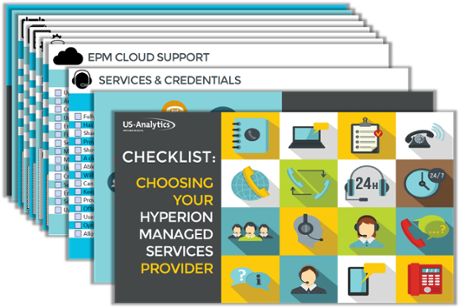When it comes to support services horror stories, we’ve heard it all. Organizations have approached us looking for a new provider because they’ve waited weeks for a ticket to resolve. Or they’re unable to get a hold of their support services team. An admin recently told us that she finally gave up and closed a ticket because the provider didn’t have the expertise to resolve it.
Often, customers are disappointed with their current provider but are still hesitant to make a change. Either they aren’t sure what expectations are realistic, or they’re skeptical that better providers exist. How can you tell if your situation is as bad as you think?
In this blog post, we’ll compare three nightmare situations with the support you should be getting from a support services dream team.
Nightmare: Slow Response/Resolution Time
You’ve probably been there before. You’re at your desk working during month-end close, and something goes wrong. It’s crunch time, and you need things to be back up and running fast. This is your support services team’s cue to swoop in and save the day… right? Guys? They miss the bat signal.
Slow and unresponsive support is one of those nightmare situations we often hear about. Typically, this happens when the support services provider…
- Doesn’t dedicate a team solely to support services. This is the most likely reason for delayed service. Very few Hyperion consulting firms have dedicated support services staff — so who’s handling your support tickets? Consultants that are in the field, already stretched thin across projects for other customers.
- Doesn’t have a good ticketing system. If you get multiple responses from support staff that are duplicating efforts, or you have to repeat yourself, your provider doesn’t have a good ticketing system (or they aren’t using it effectively).
- Doesn’t provide “follow the sun” support. Hyperion is a mission-critical system used around the clock by global organizations. If your support services provider doesn’t readily provide 24-hour support, that’s a red flag.
Response/resolution time ranked as the factor that matters most to support services customers, according to a recent survey, yet this is where too many providers miss the mark.
Dream Team: Support that Maximizes Your Time
Like we mentioned above, fast reactive support is incredibly important. Your dream team should have an easy-to-use, accessible ticketing system so that you have a clear thread of communication and tracked response/resolution times.
Just as important as reactive support is proactive support. These are scheduled tasks that you can enter in to your ticketing system to be completed at the frequency and date of your choosing. These tasks help you sleep better at night, knowing that your applications will perform well when you really need them. A proactive support plan anticipates and prevents issues before they arise so that your systems and processes run smoothly.
At the end of the day, a good support services provider recognizes that their goal is to save you time and energy. Managed services should free you up to focus on high-value, strategic tasks that can’t be outsourced. If your provider is sending unnecessary back-and-forth emails from multiple points of contact, do they really respect your time? Are they adding the value they should?
Choose a support services program designed to put your priorities first.
Nightmare: Lack of Expertise
Do your support team’s responses (or lack thereof) make you wonder if they are adequately trained in Hyperion infrastructure, applications, and business processes? You’re right to wonder. Hiring fully trained staff or getting junior staff up to speed has a price that some providers are not willing to invest.
A good support services provider is proud of their team, so before a contract is signed, you’ll see thorough bios outlining specific experience and certifications. You’ll see references and Net Promoter Scores. You’ll speak with the admin team members that you’ll work with on a regular basis.
Customers of subpar providers, on the other hand, typically find out the hard way when their systems are supported by an inexperienced team. Some find out their support is outsourced or team members are not proficient in English.
Dream Team: Expert Guidance from an Onshore Team
We’ve talked about the specific skills and experience to look for in a Hyperion support team. Expertise is one of the many advantages of outsourcing Hyperion support — with a good provider, you get access to a much broader and deeper skillset than any one admin could have.
It’s a common misconception that support services focuses only on infrastructure and technical application support. A good support services team isn’t just there to help you with break/fix issues — they help you get the most out of your EPM system by providing functional support and optimizing business processes.
Note that while a “follow the sun” model is important for 24-hour support coverage, having an onshore-based team is important for clear communication when you need it most.
Nightmare: Not Delivering on Their Promise
You can meet with an organization who promises you the moon, but it doesn’t mean they’re going to give you the moon. Some support services providers will make you promises that they don’t deliver on, like deep expertise and quick resolution times.
If your support services provider promised to optimize your system, but they’re not completing monthly maintenance tasks, then you have a problem. But how can you tell a provider won’t deliver on their promise before entering into a contract? And what can you do about it after the fact?
Dream Team: Exceeding Expectations and Adding Value
To ensure that a support services provider will deliver on their promises, ask references to compare their experience to what was initially promised. Ask the provider for a full list of Net Promoter Scores — not just a few positive examples they cherry-picked. As mentioned above, a dream team will introduce you to your managed service team members so that there are no surprises. Finally, look for value-adds that you don’t see other providers offer.
Here are some examples of value-adds:
- Can make enhancements to existing applications
- Provides thorough documentation of your environment with application and process details
- Keeps you informed of new technology requirements, capabilities, and trends
- Provides quarterly service reviews
- Offers cloud hosting, relieving the burden of infrastructure and data security
If you’re currently in a contract with a support services provider that isn’t meeting your standards, you don’t have to wait until the renewal date. Most contracts have a 30-day out clause.
Excellent support services operate on commitment, expertise, and value-adds — and you don’t have to settle for less. See for yourself with these customer stories!
- Manufacturer Cuts Costs While Improving Hyperion Performance
- Oilfield Products Company Optimizes Hyperion Performance Remotely
- Innovative Bridge Program Delivers On-Site Hyperion Assistance






